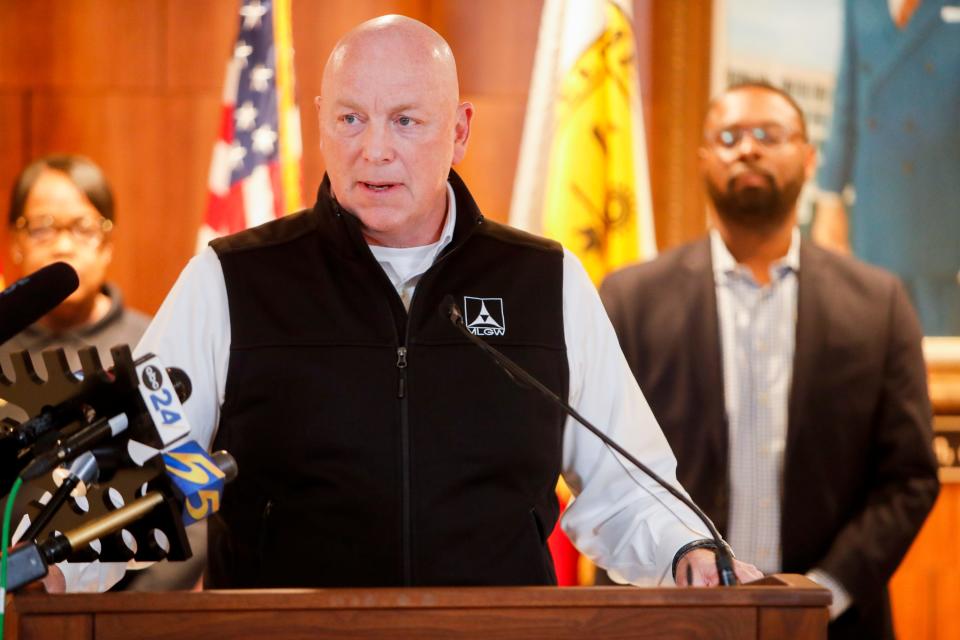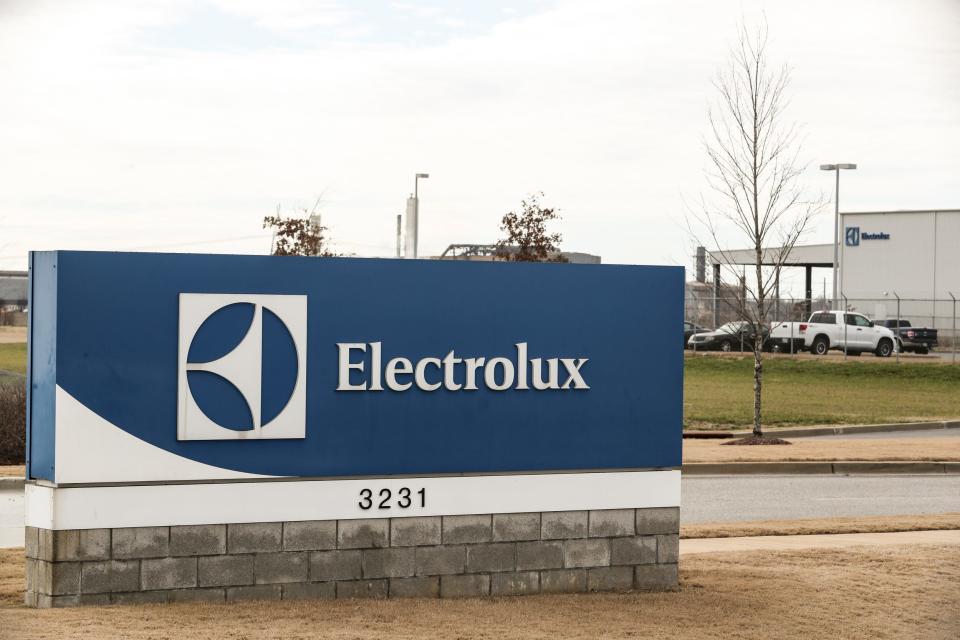How MLGW plans to tackle energy, water demands with Elon Musk's proposed xAI supercomputer
- Oops!Something went wrong.Please try again later.
Memphis Light, Gas & Water President and CEO Doug McGowen seemed confident in how the city-owned utility would handle the added stress that would come alongside Elon Musk's proposed supercomputer coming to Memphis.
The xAI supercomputer site will add 150 megawatts of electricity demand to the MLGW grid — about a 5% jump from what peak demands generally are during the summer months — and require about 1.3 million gallons of water a day for cooling. The increased demand represents approximately 1% to the water consumption.
"On a normal day, 150 megawatts will not have a significant impact on the MLGW system from an energy availability perspective," McGowen told The Commercial Appeal during a Friday afternoon interview. "On a few days a year when the grid is stressed, when we are reaching that very high level of 3,300 megawatts, that's when we start to see stress on the system. How can a utility respond to that?"

McGowen offered a few solutions to potential energy concerns during peak consumption hours. The first would come when the Tennessee Valley Authority starts up its peaking generation plants, providing a boost of electricity. McGowen said that is typically the first move when the grid is stressed.
More: Inside look: How the Greater Memphis Chamber landed the Elon Musk, xAI project
MLGW also has a "demand response program" that companies can enroll in. During peak consumption hours, MLGW asks those enrolled in the program to "dramatically lower their energy consumption."
"The percentage [of energy conservation] is still being worked out between TVA and [xAI], but there is an incentive for them to do that for four or five days a year," McGowen said. "They may be called to do that, so they get a small break on their electric price in exchange for that flexibility, and so we can retain the ability for everybody else to have power."
The third method is part of McGowen's ongoing efforts to beef up the electrical grid. That project will allow MLGW to inject energy stored in batteries to the grid. McGowen has budgeted for these utility-scale batteries for this fiscal year, but the problem is currently acquiring those batteries.

Though saying the city-owned utility does not have a brand preference when it comes to the batteries it buys, another Elon Musk-owned company — Tesla — produces these batteries.
"Our primary focus has been on getting the project done," McGowen said when asked if the xAI facility could lead to assistance in getting batteries from Tesla. "We have expressed an interest in battery storage, and in our initial conversation said, 'You certainly have a lot of expertise here. If you can at least connect us with some experts...' Today, everybody's in line, waiting to get batteries. If there was an encouragement to get us batteries earlier, we would certainly welcome that opportunity."
To accommodate the power that the supercomputer will need, xAI is building out capacity at an existing substation that draws from the nearby TVA Allen Combined Cycle Plant. That substation will increase capacity in two phases, starting with 50 megawatts in the fall and up to 150 megawatts by 2025, McGowen said.
That would normally be an undertaking of MLGW, but McGowen said Friday that xAI would handle building it, and the substation would be inspected later.
xAI could join push for water reclamation facility
In the works for over a year now has been the effort to build a water reclamation facility in the same area xAI's supercomputer — proposed to be built within the vacant Electrolux building — will be constructed. The facility would take treated wastewater, called effluent, and further purify it to be used by industries for cooling purposes.
Industries in Memphis currently use water pumped from the aquifer, with the same quality as drinking water, for cooling purposes. Effluent is also currently flushed into the Mississippi River after being processed at a wastewater plant.
The water reclamation facility would take some amount of that effluent, and ensure that it could be used by facilities such as the wastewater plant, TVA's Allen Combined Cycle Plant and xAI. It would also relieve some burden that xAI, along with other industries, place on the aquifer by reusing wastewater.
Though planning to add an additional 1% to MLGW's water demand, xAI has already expressed interest to MLGW in using water from the reclamation plant. Until the plant is built and operational, however, xAI would use water pumped from the aquifer.
Lucas Finton is a criminal justice reporter with The Commercial Appeal. He can be reached at Lucas.Finton@commercialappeal.com, or (901)208-3922, and followed on X, formerly known as Twitter, @LucasFinton.
This article originally appeared on Memphis Commercial Appeal: MLGW says it has plans to alleviate energy concerns with Musk's xAI

